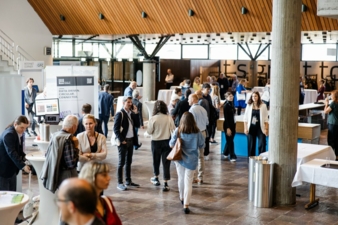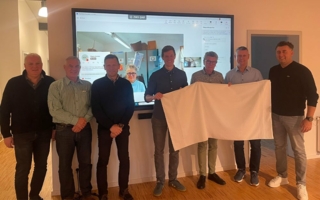04/09/2024 – Fiber conference — auf Deutsch lesen
Programme highlights of the 63rd Dornbirn GFC 2024
The 63rd Dornbirn GFC 2024 is characterized by the energy transition and presents innovative solutions for the textile industry. The presentations on the main topic “Energy Solutions” will start with a plenary lecture on the opening day.
Rudolf Zauner, a Verbund AG’s expert in renewable energies, will kick off the opening day with a compelling plenary lecture on this crucial topic. As the industry moves towards further decarbonization. Zauner will dive into innovative energy solutions and explore how the collaboration between industry, energy suppliers, and start-ups can maintain competitiveness while driving sustainability.
Energy Innovations Session
In collaboration with the Institute for Textile Technology of RWTH Aachen University (ITA) and their industrial partners, this session will offer an in-depth exploration of cutting-edge energy solutions.
Prof. Sauer (RWTH Aachen University): The Future Energy System – A comprehensive look at the future supply of electricity and material energy sources.
Munib Amin (E.ON Group Innovation GmbH): The Future Energy System – Insights into the evolving landscape of energy supply and innovation.
Thomas Riegler (A EnBW Company): Renewable Energy – A Systemic Perspective and New Business Models Needed – Discussing the integration of renewable energy within systemic frameworks and the business models that will drive this transition.
EU Regulations Update
Cornelia Mohor from the European Commission will address upcoming EU regulations and their impact on textile products on Wednesday, September 11.
Green washing
Where does it start, where does it end: The truth behind words: Vocabulary for circular economy and sustainability can be misused. Dimitiry Deheyn, Scripps Institution of Oceanography, University of California San Diego, will provide definitions for these meaningful words and indicate the specific framework for which they should be used.




